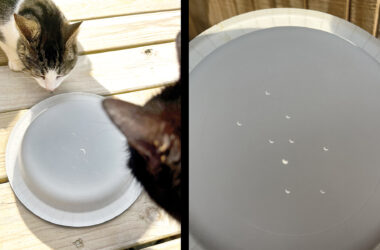I Corinthians 6:12-20
In the text before us Paul addresses the need for personal discipline of members within the church. Paul states, “All things are lawful unto me, but all things are not expedient” (v. 12a). While the use of the pronoun, me, is specific to Paul, every believer is “me” in the sense that we are all washed in the blood of the Lamb and are justified in Him and have the Holy Spirit of God in us (see v. 11). While all things may be lawful, not all things are expedient.
Paul, in writing to the church at Corinth, is speaking to all Christians of every era. His words are for all who have been saved or who ever will be saved from the judgment that awaits unbelievers. Christ has made us free of the law and its consequences. Not all things, however, are in keeping with the purpose for which we were made free of the law. Paul vows that he will not let freedom from the law to have power over him. We, like Paul, must face and deal with non-expedient choices.
It is apparent that there were many in the church at Corinth who were doing the very thing that Paul shunned — non-expedient things. What is a non-expedient thing? For Paul, it was indulgences which could have power over him.
In verse 13, Paul addresses a specific indulgence that troubled the church at Corinth: fornication. Fornication refers to any kind of sexual misconduct or sexual impurity outside of the bounds of marriage. In the text before us, fornication is the translation of the Greek word porneia.
There were some within the church who regarded fornication as meats for the belly and the belly for meats. Tasty foods are provided by God and God has given us an appetite for tasty food. Both food and our appetite for food are temporary; they are destroyed when life is taken from the body. The relationship between fornication and the body, however, is not the same as the relationship between food and appetite. The body of the believer is a duplex. It is both the house of our old self which was under the law and the house of the Holy Spirit which is of God. It is not expedient to reside in both sides of this duplex. It is expedient that believers should reside in the half that is forever.
The dead body of the believer shall be transformed. We have the promise that we shall be raised up by the power of God in the same manner that God raised up Christ, our Lord. The problem in the church at Corinth was simple: they did not regard their physical bodies in the same manner as does God. The Holy Spirit of God moved Paul to ask: “Know ye not that your bodies are the members of Christ?” God views our bodies as members of Christ. God views us as joined to Christ. In God’s eyes we are joined to Him who knew not sin. We are the bride of Christ. We are joined as one flesh (see Gen. 2:24).
In verse 15, Paul uses the pronoun, I, in asking if he shall make the members of Christ into the members of a harlot. There is only one individual member of Christ (Paul, himself) that Paul could possibly join with one flesh to a harlot. The apostle recoils from the very thought: “God forbid.” In verse 12, Paul stated that all things were lawful to him. Paul (and all who are joined in the body of Christ) are made free of the law. The law does not apply to fornication because we are not governed by the law. We are not governed; we are bound as one to Him who is without sin. We are not independent of Christ. All who are saved are joined to the Lord in one Spirit (v. 17). The Holy Spirit cannot be divided. Paul could not divide the Spirit that bound him to Christ and we cannot divide the one Spirit that joins us to Him. Every sin is a sin which is outside of the body (outside of Christ). Fornication, while outside the body, is a sin which joins that which is pure to that which is not pure. It is a sin against one’s own body.
Paul implores the Corinthians (and us) to flee fornication for this reason. Fornication is a sin against that which God shall raise up. It is a sin against the temple of the Holy Ghost. It is a sin against the temple that houses the Holy Spirit which is given of God. It is a sin which is against that was purchased with a price. It is a sin which is against that which was purchased by God’s love. It is a sin against that which was purchased upon the cross of Calvary. It is a sin which joins in one flesh that which was purchased by God to that which is impure.
We, like the Corinthians, need be mindful of the fullness of the price of our purchase. We, like the Corinthians, were purchased for a price. We are not our own. We are called to glorify God in body and in spirit. We are called to glorify God with that which He has purchased and that which He has given. In his epistle to the Romans, Paul was moved to write: “I beseech you therefore, brethren, by the mercies of god, that ye present your bodies a living sacrifice, holy, acceptable unto God, which is your reasonable service” (Rom. 12:1).
Let us do what is expedient. Let us do our reasonable service.



